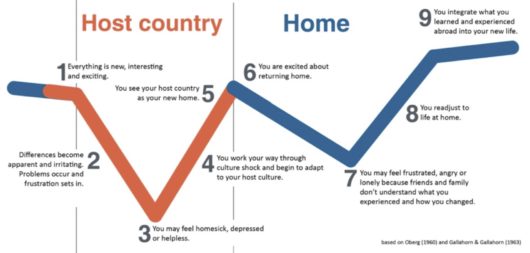Most persons returning home from a significant cross-cultural journey go through a very unique experience termed cross-cultural reentry, reverse culture shock, or reentry shock. I experience this each time I return from Angola or China, and it consists of disorientation over relationships, economic life, activity expectations, and even attention span.
These multi-fold disorientations compound to create an experience in which returning individuals do not feel entirely in touch with reality. As in culture shock, disorientation dominates the psychological state of mind. This surreal experience is frequently accompanied by unusual physical fatigue, marked mental irritability, and atypical criticism. Loneliness is quite common, as is emotional withdrawal from relationships that were previously warm.
How can we better cope with this common occupational hazard germane to international healthcare volunteers? Here are a few therapeutic tips:
- Plan a light initial schedule. The physical fatigue of travel, compounded by the emotional fatigue of readjustment, can take a predictable toll. Compensate through regular, prolonged sleep and planned leisure to ease the initial process of reentry.
- Decide in advance what information to share. Sharing one’s cross-cultural experiences with others is healthy. However, such communication requires considerable time and energy on everyone’s part, and most listeners are not willing or interested enough to participate. Decide in advance what sort of impression you desire to create and to share, briefly, what information will meet this goal.
- Expect to be misunderstood. You should anticipate being underappreciated. Some solace can be found in the fact that while you can tell your stories, it is ultimately up to the listeners to decide how they will receive the information.
- Get a Formal Debriefing. A few sessions with a counselor who is skilled and experienced at reentry can be extremely valuable, especially since most close friends and family members are unprepared and unfamiliar with the issues surrounding reentry.
For some, reentry is a painful, prolonged process. However, Craig Storti in The Art of Crossing Cultures astutely observes:
Simply because reentry can be frustrating, lonely, and generally unpleasant at times is not to say that it is a negative experience. After all, frustration, loneliness, and unpleasantness are very often the preludes to insight and personal growth. Maybe reentry doesn’t always feel good, but then feeling good isn’t much of a standard measuring experience.

